Sunday, December 18, 2022 | 3 p.m. at The Chan Centre for the Performing Arts
NOTE: There is another performance of this concert on Saturday, December 17 at The Kay Meek Arts Centre in West Vancouver. Tickets for that performance must be purchased through the Kay Meek Arts Centre’s Box Office. This concert is part of both the Masterworks Series Subscription and the Pacific Baroque Orchestra Series Subscription.
Artists: The Pacific Baroque Orchestra directed by Alexander Weimann; Hélène Brunet and Arwen Myers, sopranos; Krisztina Szabo, alto; Jacques-Olivier Chartier, tenor; and Sumner Thompson, bass
The boys’ choir of the St. Thomas church in Leipzig was founded in 1212, and to this day, it still is one of the most prestigious ambassadors of musical culture in Germany. Historically, the choir director had to prepare the services in four churches and organize the music for city functions. Bach held the position from 1723 to his death in 1750; he was appointed only after two of his colleagues, further up on the list, Telemann and Graupner, had declined.
There is a Pre-Concert Talk for the December 18 concert at The Chan only and it starts at 2:15 p.m. with broadcaster/author Bill Richardson in conversation with Alexander Weimann and cornetto player Matt Jennejohn.
This concert is generously sponsored by Tony & Margie Knox, Linda Leonard, and Dr. Katherine Paton
PROGRAMME
Johann Sebastian Bach (1685–1750)
Magnificat (1723 version)
Interval
Cantata BWV 110, Unser Mund sei voll Lachens
TEXTS AND TRANSLATIONS
Click here for the texts and translations.
PROGRAMME NOTES
Bach’s Magnificat and Cantata 110 explore a wide spectrum of human responses to the Christmas story, from humility to ecstasy, sober consideration to laughing astonishment, and extroverted declamation to introspective affirmation. In them, we hear Bach amplifying the voices of different people and exploring their personal perspectives, especially that of an ordinary young woman, Mary, as she responds to the astounding news that she would give birth to the Son of God. The musical result is polyphonic – many-voiced – in every possible sense.
Musicians of the Baroque were deeply concerned with music’s relation to speech and its ability to heighten the impact of a text by magnifying its structure, rhythms, and mood, thereby touching the hearts of listeners more profoundly. Training in rhetoric, the art of communication and persuasion, was a pillar of eighteenth-century education that prepared boys like Bach for careers as lawyers, diplomats, court secretaries, city councillors, pastors, teachers, and musicians. One of the central rhetorical principles that Bach certainly learned was copia: abundant variety of expression. This aesthetic of copiousness inspired Bach’s highly contrasting settings of the twelve verses of the Magnificat, and his frequent repetition of text and musical figures, each repetition an opportunity for variation and contemplation of another nuance of meaning. Bach sets texts like an actor might explore a script, repeating phrases over and over, placing emphasis on different words to explore expressive possibilities.
So, in composing his sacred music, Bach began with the text. The Magnificat text, a canticle taken from the first chapter of Luke’s gospel, is the Virgin Mary’s song of praise celebrating her pregnancy with the promised Messiah, God’s faithfulness and generosity, and the transformation that the Messiah would bring by exalting the lowly and humbling the powerful. Martin Luther rejected the Roman Catholic Church’s veneration of Mary as a powerful intercessor. Instead, his commentary on the Magnificat emphasized her femininity, humility, humanity, and her singing voice, making her accessible as a mother, companion, and example of Christian virtue and of the chief use of music to glorify God and edify others. In Bach’s Leipzig, the Magnificat was sung in a simple German version every Sunday at evening vespers, reflecting Luther’s esteem for this text. On important feast days, the congregation expected an elaborate version for voices and instruments setting the formal Latin text.
Scholar Wendy Heller has demonstrated how closely Bach’s Magnificat reflects Luther’s commentary, especially his attention to Mary’s personal perspective. It opens with a jubilant chorus, for, as Luther noted, “she sang [the Magnificat] not for herself alone but for us all, to sing it after her.” In the following two verses, we hear Mary’s own voice in two soprano arias: the innocent, dance-like “Et exultavit” (My spirit hath rejoiced) and “Quia respexit” (For He hath regarded the lowliness of his handmaiden) in which the descending shapes of the vocal line paint Mary’s humility, while the oboe continually exalts those falling melodic shapes to higher pitches. Bach sets the text “Quia fecit” (He that is mighty hath magnified me) as a muscular bass aria emphasizing God’s strength, following it with the tender, motherly lullaby “Et misericordia” (And his mercy is on them that fear him), and so on. So, Bach’s Magnificat does not offer a dramatic representation with the character of the Virgin Mary played by a single singer, but rather as Wendy Heller articulates “the sense of Mary’s subjectivity is split among the chorus and voices.”
On Christmas Day, Leipzig tradition dictated that additional hymn texts be interpolated into the Magnificat text to tell the story of the birth of Christ. Bach composed these hymns after he had completed his Magnificat, choosing to pay homage to the voices of his predecessors at the Thomaskirche through them. The first, “Von Himmel hoch” he set as an a cappella motet in the Renaissance style of Thomaskantor Valentin Otto; the next “Freut euch und jubiliert” he wrote in a lighter polyphonic style very similar to an early seventeenth-century setting of the same text by Sethus Calvisius. “Gloria in excelsis Deo” imitated the simple, chordal, declamatory style popular with cantors Johann Schelle and Johann Kuhnau in the late seventeenth century. Finally, Bach used the most up-to-date, operatic style of his own generation for “Virga Jesse floruit”. It is as if Bach brings together Mary’s song, with the chorus of singing Christians across time, and the specific compositional voices of Leipzig’s most beloved musical leaders.
The text of Cantata 110, created by poet and novelist Georg Christian Lehms, comprises biblical quotations with newly composed poetry, all prophesies about or reactions to the Christmas story. To begin his setting, Bach borrowed the overture from his Orchestral Suite No. 4, with its majestic opening and closing sections and its bubbling middle section that must have reminded Bach of the laughter of the text. Into this instrumental piece, he seamlessly integrates new choral parts as if they had been there all along. In the next aria, the tenor invites us to lift our thoughts to heaven along with the swirling flute lines to contemplate salvation, and the bass, perhaps the voice of the pastor, declaims a text from the book of Jeremiah in recitative. Bach chooses the poignant combination of alto voice and oboe d’amore to express for the central text about the pain of human separation from God and follows it with a love duet for soprano and tenor joining to praise God, adapted from the Magnificat interpolation “Virga Jesse floruit”. Then, the bass voice of the pastor returns, amplified by trumpet accompaniment, to admonish everyone to raise their voices in song. The cantata concludes not with the expected rousing chorus, but rather a heart-felt, introspective chorale verse.
Bach’s music invites us to inhabit the richness of subjective, human experience imaginatively and viscerally from the downcast position of a first-century servant girl to the awe and ecstasy of communion with the Divine. Luther’s evocative summary of the Magnificat text seems to anticipate the transportive power of Bach’s composition. “My life and all my senses float in the love and praise of God and in lofty pleasures, so that I am no longer mistress of myself; I am exalted, more than I exalt myself, to praise the Lord.”
- Notes by Christina Hutten
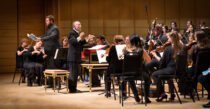
Pacific Baroque Orchestra
The ‘house band’ of Early Music Vancouver, The Pacific Baroque Orchestra (PBO) is recognized as one of Canada’s most exciting and innovative ensembles performing “early music for modern ears.” Formed in 1990, the orchestra quickly established itself as a force in Vancouver’s burgeoning music scene with the ongoing support of Early Music Vancouver. In 2009, PBO welcomed Alexander Weimann as Director. His imaginative programming, creativity and engaging musicianship have carved out a unique and vital place in the cultural landscape of Vancouver.
PBO regularly joins forces with internationally-celebrated Canadian guest artists, providing performance opportunities for Canadian musicians while exposing West Coast audiences to a spectacular variety of talent. The Orchestra has also toured throughout BC, the northern United States, and across Canada. Their 2019 East Coast Canadian tour with Canadian soprano Karina Gauvin culminated in a critically acclaimed album, Nuit Blanches, released by Atma Classique.
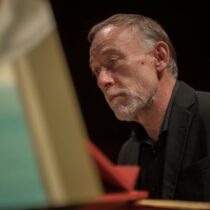
Alexander Weimann, dir.
Alexander Weimann is one of the most sought-after ensemble directors, soloists, and chamber music partners of his generation. After travelling the world with ensembles such as Tragicomedia, Cantus Cölln, the Freiburger Barockorchester, Gesualdo Consort and Tafelmusik, he now focuses on his activities as Music Director of the Pacific Baroque Orchestra in Vancouver, Music Director of the Seattle Baroque Orchestra, and regular guest conductor of ensembles including the Victoria Symphony, Symphony Nova Scotia, Arion Baroque Orchestra in Montreal and the Portland Baroque Orchestra.
Alex was born in Munich, where he studied the organ, church music, musicology (with a summa con laude thesis on Bach’s secco recitatives), theatre, mediæval Latin, and jazz piano, supported by a variety of federal scholarships. From 1990 to 1995, he taught music theory, improvisation, and Jazz at the Munich Musikhochschule. Since 1998, he has been giving master classes in harpsichord and historical performance practice at institutions such as Lunds University in Malmö, the Bremen Musikhochschule, the University of California (Berkeley), Dartmouth College (New Hampshire), McGill University, Université de Montréal, and Mount Allison (New Brunswick). He now teaches at the University of British Columbia and directs the Baroque Orchestra Mentorship Programme there. He has received several JUNO and GRAMMY Award nominations – most recently, for the album Nuit Blanches with the Pacific Baroque Orchestra and Karina Gauvin.

Hélène Brunet, soprano
Hélène Brunet is hailed as “a singer of tremendous quality” with “a voice of perfect beauty and sincere expression.” Recognized for her interpretations of Bach, Handel, and Mozart, her repertoire extends from Baroque to the music of the 20th and 21st centuries. Hélène is the recipient of a prestigious Juno award (2022) for her first solo album Solfeggio (ATMA Classique) with renowned ensemble L‘Harmonie des saisons. Hélène is the first artist to ever win for a solo album in the category Large Ensembles at the Junos.
The critics describe Solfeggio as “a first-rate vocal achievement” (La Presse) and a “red carpet that displays Hélène’s superb and enveloping tone” (Le Devoir). Accolades continue with Solfeggio being selected as one of CBC Music’s Top 20 Classical albums of the year. On the stage, Hélène sings with the American Classical Orchestra at Lincoln Center in New York City, with American Bach Soloists in San Francisco, and the Orchestre Métropolitain under the baton of Yannick Nézet-Séguin, who says, “Hélène Brunet is the embodiment of class, refinement, and purity.” Hélène is the recipient of generous grants from Musicaction and the Canada Council for the Arts. She studies with voice teacher Neil Semer in New York.
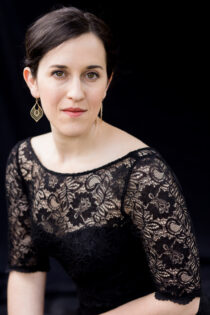
Arwen Myers, soprano
Praised for her “crystalline tone and delicate passagework” (San Francisco Chronicle), soprano Arwen Myers captivates audiences with her timeless artistry and exquisite interpretations. Transmitting a warmth and “deep poignancy” (Palm Beach Arts Paper) onstage, Arwen shines in solo performance across the US and beyond. With outstanding technique and mastery of a wide range of vocal colors, Arwen’s dazzling oratorio and solo appearances feature repertoire from the baroque to modern day, and everything in between. Her history includes appearances with Portland Baroque Orchestra, Early Music Vancouver, Pacific MusicWorks, Indianapolis Symphony Orchestra & Philharmonia Baroque Orchestra, working with such notable conductors as Nicholas McGegan, Monica Huggett, David Fallis, John Butt, David Hill, Scott Allen Jarrett, Erick Lichte & Matthew Dirst.
Recent highlights include Handel with Philharmonia Baroque Orchestra; Bach & Purcell with Portland Baroque Orchestra; Vivaldi, Monteverdi & Gabrieli with Early Music Vancouver; Handel with Oregon Bach Festival; Fauré with Indianapolis Symphony Orchestra; and the world premiere of Zachary Wadsworth’s JUNO-nominated When There is Peace with Chor Leoni, which received national broadcast across Canada. Of her title role in Handel’s Semele with American Bach Soloists Academy in 2018, San Francisco Classical Voice noted, “some of these star turns were shiny indeed, with soprano Arwen Myers leading the way… her musicality and demure demeanor remained a renewable pleasure.” An exceptionally talented and generous chamber musician, Arwen features with some of the nation’s premiere ensembles, including Seraphic Fire, Bach Akademie Charlotte, Spire Chamber Ensemble, and Bach Collegium San Diego, and Fear No Music. Arwen is represented by Aligned Artistry.
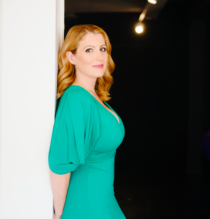
Krisztina Szabó, alto
Hungarian-Canadian mezzo-soprano Krisztina Szabó is highly sought after in North America and Europe as an artist of supreme musicianship and stagecraft. She is known for her promotion and performance of contemporary Canadian works. Among her many laudatory reviews, Opera Canada declared her to be an “exceptional talent” after her performance of the title role of Dido in Purcell’s Dido and Aeneas. After a performance with Tapestry Opera, the music blog, Schmopera wrote that “her instrument is one-of-a-kind and she has cemented herself as a darling of Canadian experimental music and opera…her sensibility and sensitivity to the material is truly inspiring”. In her hometown of Toronto, she has been nominated twice for a Dora Award for Outstanding Female Performance. Krisztina has recently been appointed Assistant Professor of Voice and Opera at the University of British Columbia School of Music.
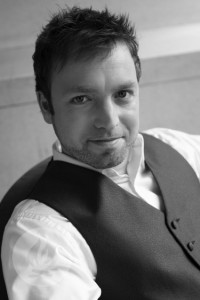
Jacques-Olivier Chartier, tenor
As a Winner of Tafelmusik Baroque Orchestra’s Competition in 2016, Jacques-Olivier debuted recently with this ensemble under conductor Ivars Taurins.
Highlights of his past seasons include Purcell’s King Arthur and B minor Mass with the American Bach Soloists in San Francisco, Beethoven’s C major Mass with Ottawa Choral Society as well as Bach’s St Matthew Passion (arias) with Ottawa Thirteen Strings Orchestra, the B minor Mass with Bishop’s Choir (St-Benoit du Lac), the role of the Evangelist in Bach’s St Matthew Passion at Maison Symphonique de Montréal under Louis Lavigueur, Handel’s Messiah under Jacques Lacombe and the Orchestre Symphonique de Trois-Rivières and a special French Music program from the Napoleonic period under conductor Mathieu Lussier.
This season, Jacques is invited by the Orchestre symphonique de Laval for Bach Cantatas under Alain Trudel as well as the Orchestre Sinfonia for Haydn’s Lord Nelson Mass under Louis Lavigueur. He is also pleased to join I Musici Orchestra and Jean-Marie Zeitouni for some Antonio Vivadi’s Psalms. He will also take part of the Lamèque Internationnal Baroque Festival, New Brunswick for Telemann’s Motets. Jacques is also invited by the Ottawa Bach Choir under Dr. Lisette Canton. He will finish his season with a major Canadian and Belgium tour of a staged version of Schubert’s Winterreise. This project include the captivating dancer José Navas and the precious collaboration of Francis Perron, pianist.
As a ”Bach tenor” Jacques sings both Passions and Cantatas under conductors such as Yannick Nézet Seguin (Evangelist), Jean-Marie Zeitouni (Evangelist), Louis Lavigueur (Evangelist), Monica Huggett (Arias), Patrick Wedd (Arias), Alain Trudel (Evangelist), Paul Halley (Arias) and Kevin Mallon (Arias) and Bernard Labadie.
Jacques-Olivier has been guest soloist for Festivals such as the Montreal Bach Festival, Montréal Baroque, Early Music Vancouver Festival, Victoria Early Music Society, Seattle’s Pacific Musicworks, Ottawa Chamber Music Festival (with Matthew White and Les Voix Baroques) as well as New Brunswick’s Lamèque Baroque Festival.
Recent appearances on the operatic stage include Nelligan (Charles Gill) by André Gagnon with Opéra de Québec, Pluton in Offenbach’s Orphée aux Enfers and Remendado in Carmen both with Société d’art Lyrique du Royaume. He also sang Ferrando in Mozart’s Così fan tutte with Orchestre de la Francophonie under Jean-Philippe Tremblay, Zémire et Azor (role of Ali) by André Grétry with l’Atelier de l’Opéra de Montréal, staged by Denys Arcand. He also sang the role of Don Ottavio in Don Giovanni under Jean-Francois Rivest.
Jacques began his musical training at nine years of age as a member of the childrens’ choir ”Petits Chanteurs de la Maîtrise du Cap” (Pueri Cantores du Québec). He received his Master from the Université de Montréal in both Opera and Early Music studies. Mr. Chartier continued his vocal training with Andreas Scholl in the Advanced Studies program at the Musik Akademie der Stadt Basel, Switzerland and the Britten-Pears School of Music, England. Jacques also took part of the American Bach Soloists Academy in San Francisco.
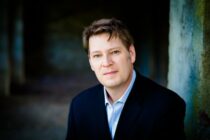
Sumner Thompson, bass
Praised for his “elegant style” (The Boston Globe), Sumner Thompson is one of today’s most sought-after baritones. He has performed across North America and Europe as a soloist with renowned ensembles such as Concerto Palatino, Tafelmusik, Apollo’s Fire, Les Boréades de Montréal, Les Voix Baroques, the King’s Noyse, Mercury Baroque, and the symphony orchestras of Charlotte, Memphis, and Phoenix. Recent highlights include Monteverdi’s Vespers of 1610 and the new Vespers of 1640 with the Green Mountain Project; Buxtehude’s Membra Jesu Nostri with Les Voix Baroques and Houston’s Mercury Baroque; Mozart’s Requiem at St. Thomas Church in New York City; a tour of Japan with Joshua Rifkin and the Cambridge Concentus; and Britten’s War Requiem with the New England Philharmonic. He most recently appeared with EMV last year in From War to Peace: Heinrich Schurz and His Time (November) and Festive Cantatas: JS Bach Magnificat (December).


